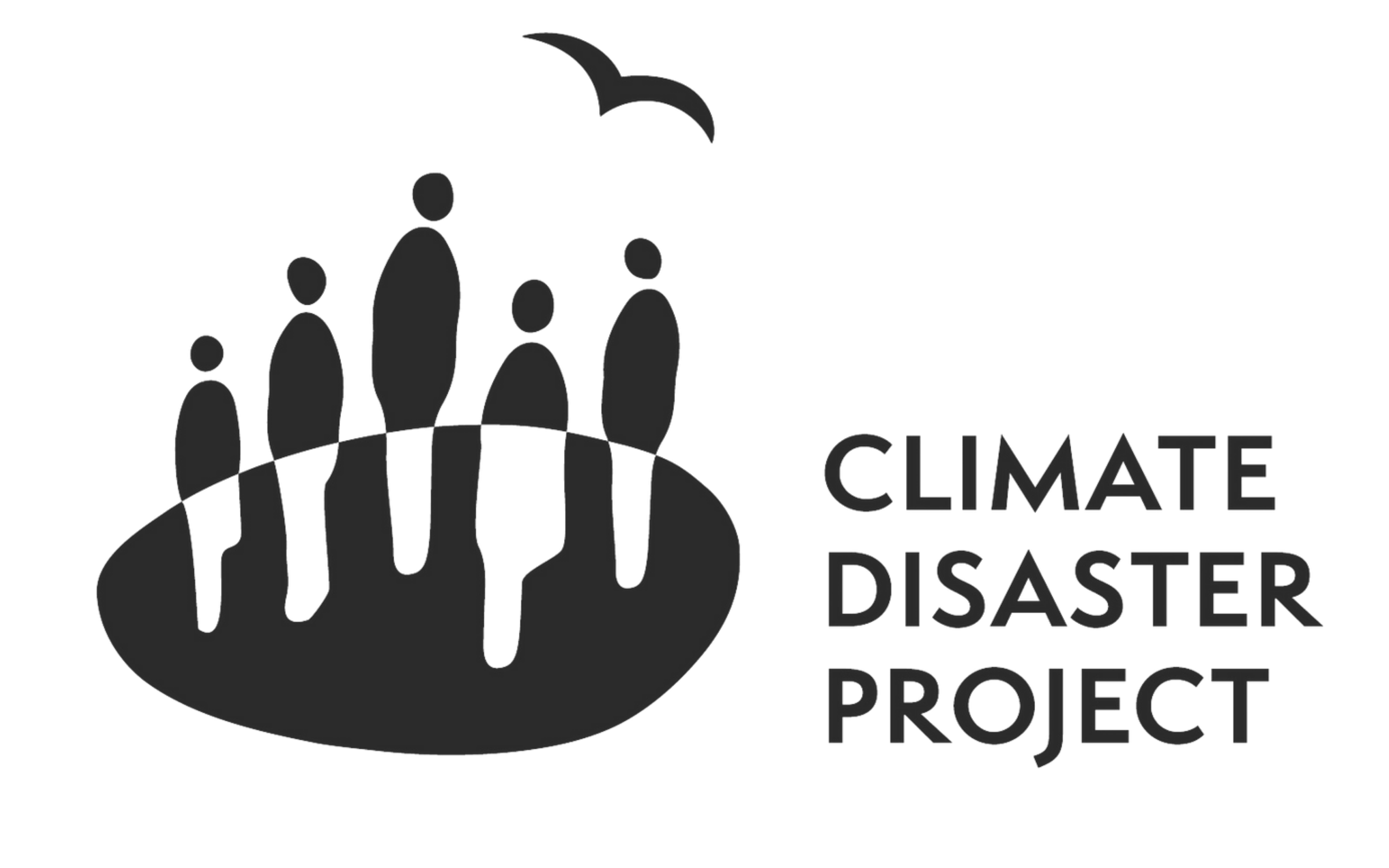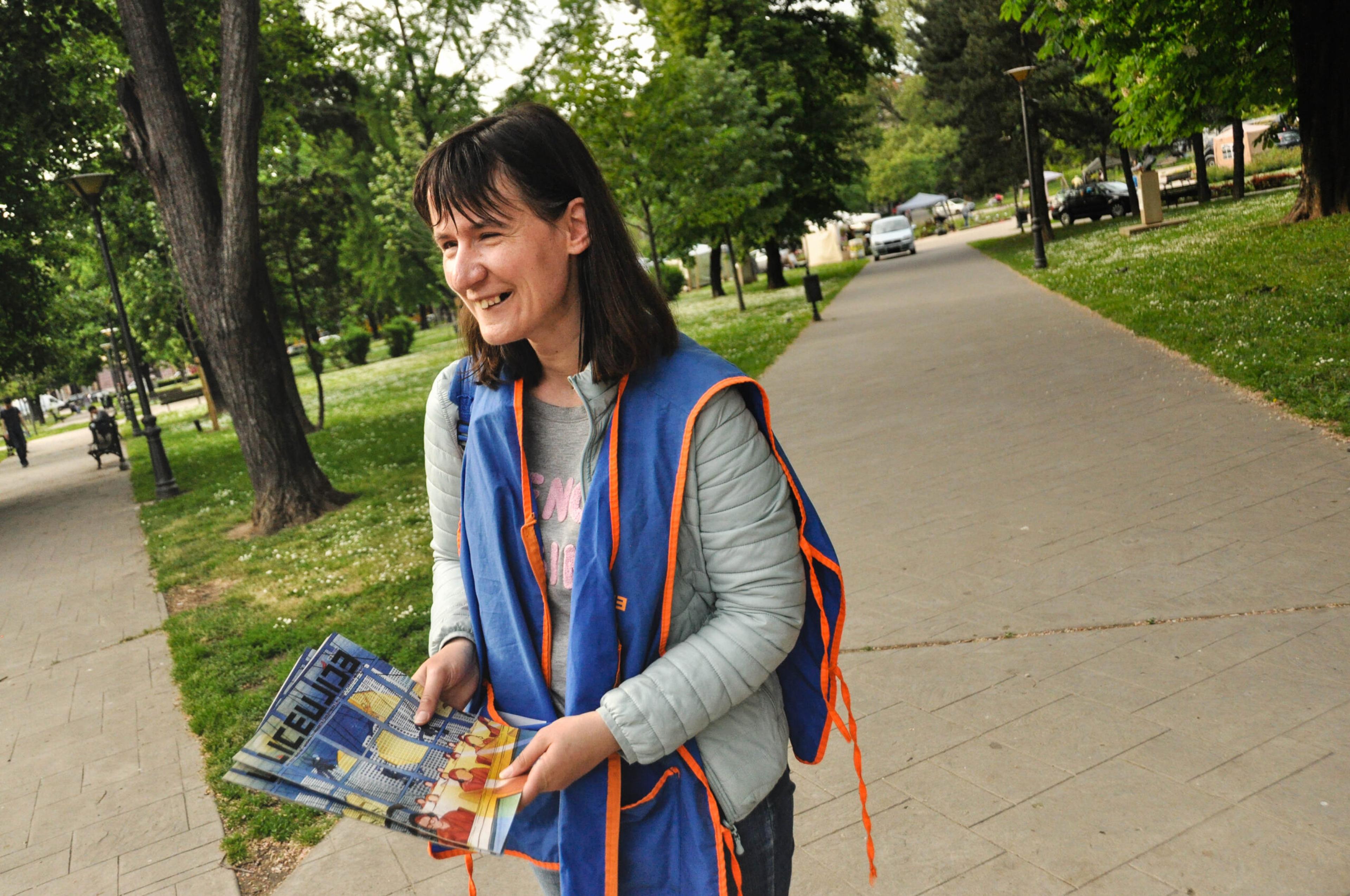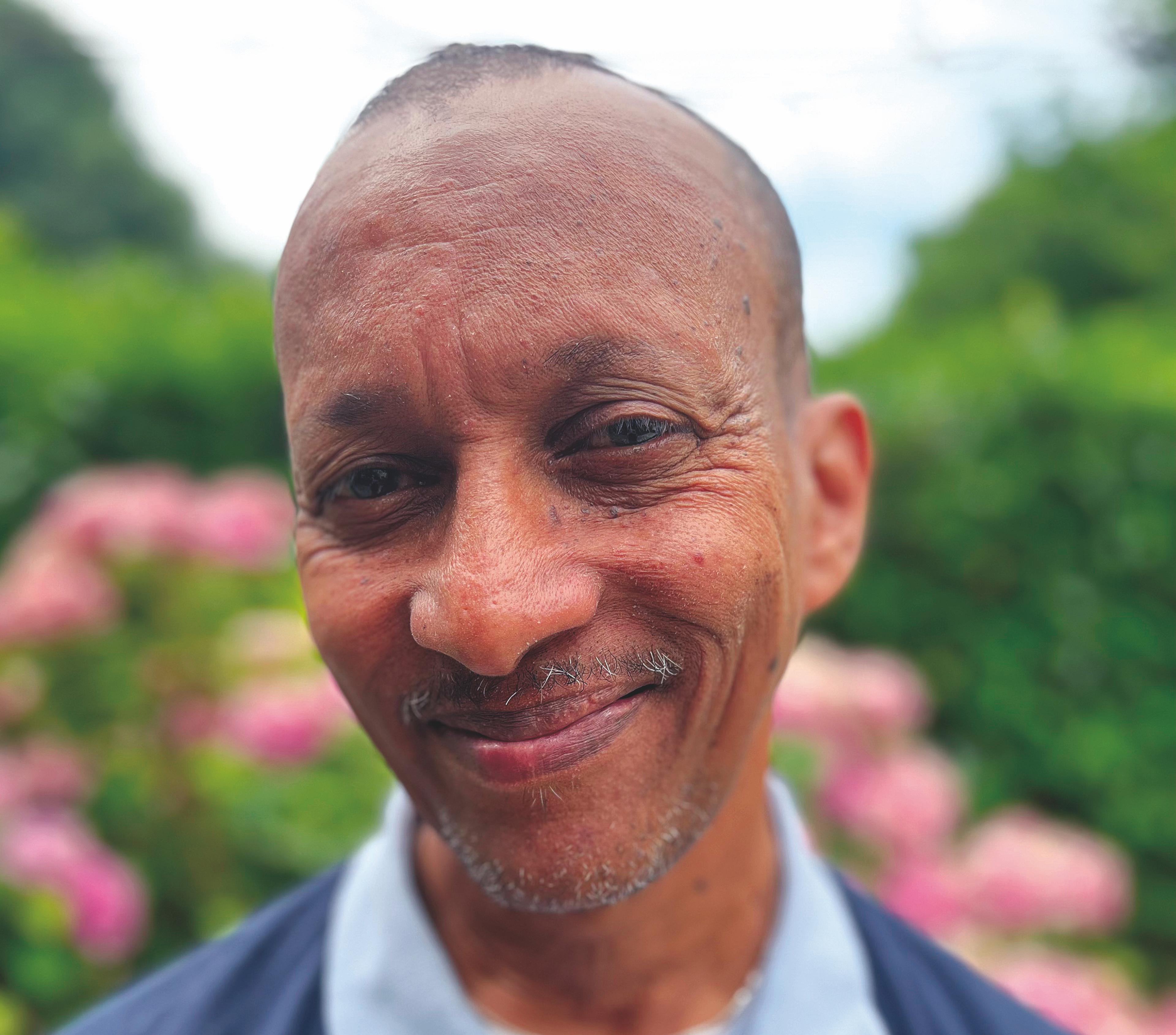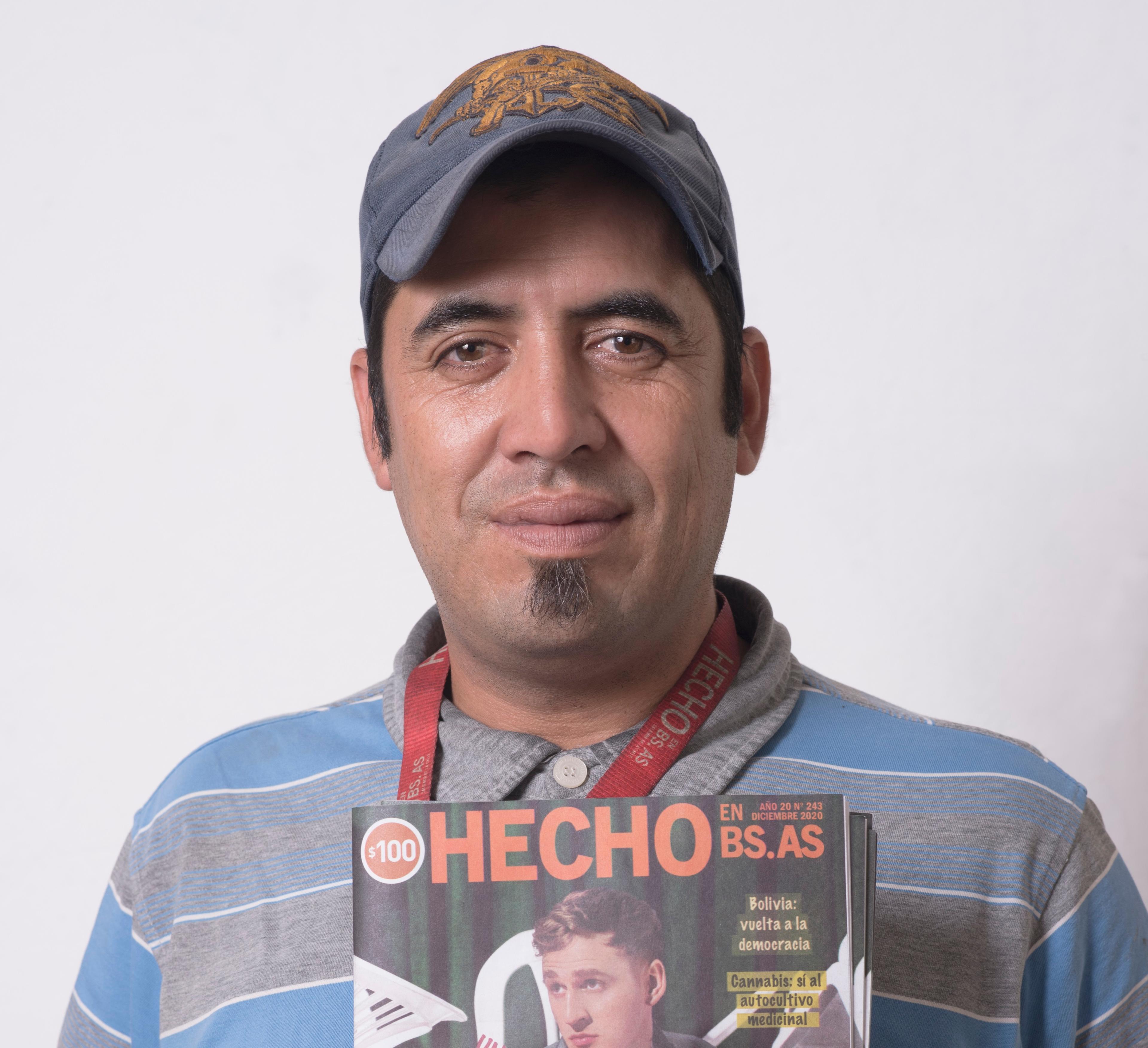Megaphone’s Climate Disaster Project: “It was hard for anybody to take care of themselves”
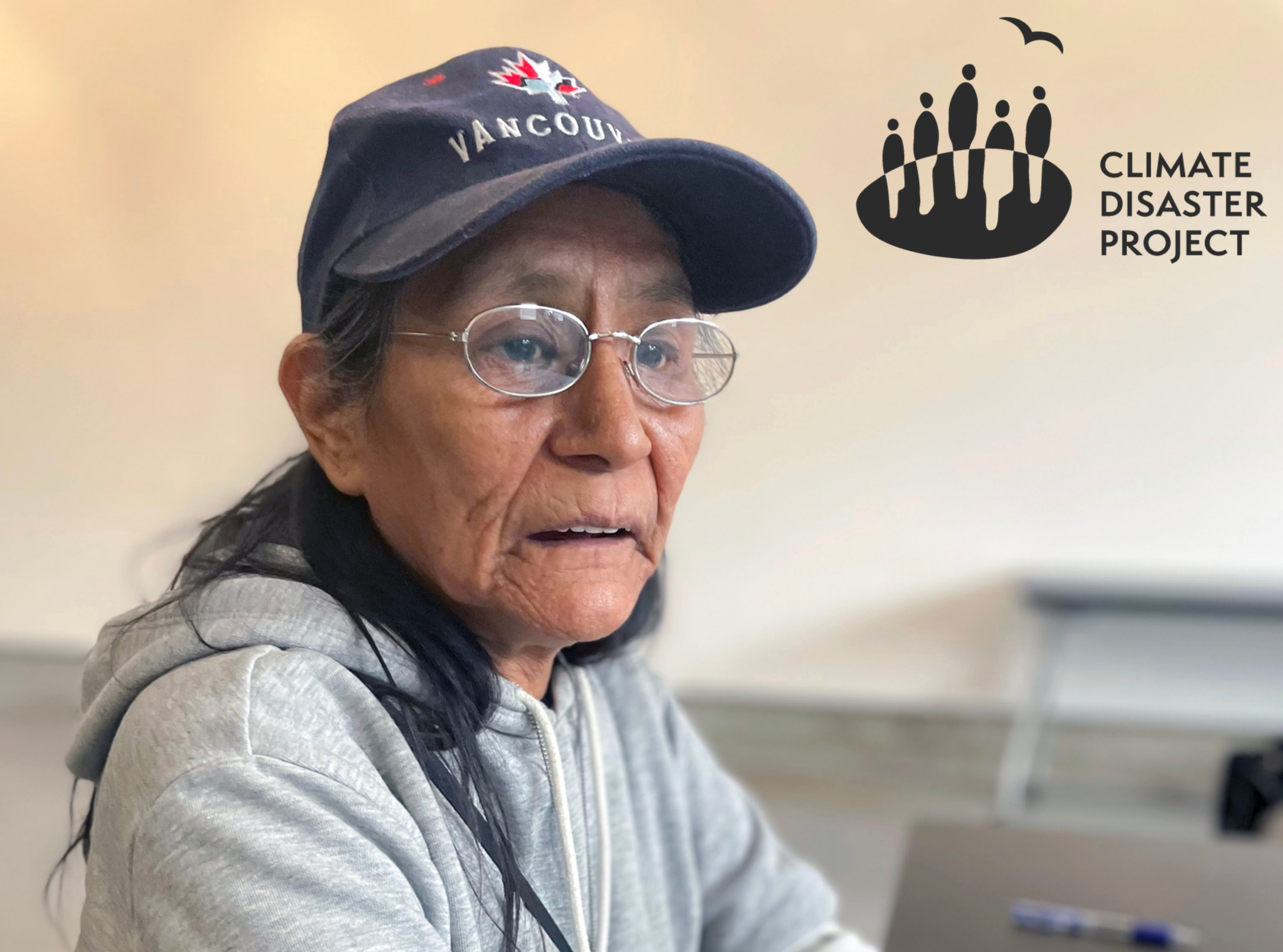
DJ O'Brien collapsed in her building's elevator when record-high temperatures hit the Downtown Eastside last summer. 'That's how I found out I had COPD,' she says. Photo by Rob Smith.
By DJ O’Brien
as told to Francesca Find and Sean Holman
- Vendor stories
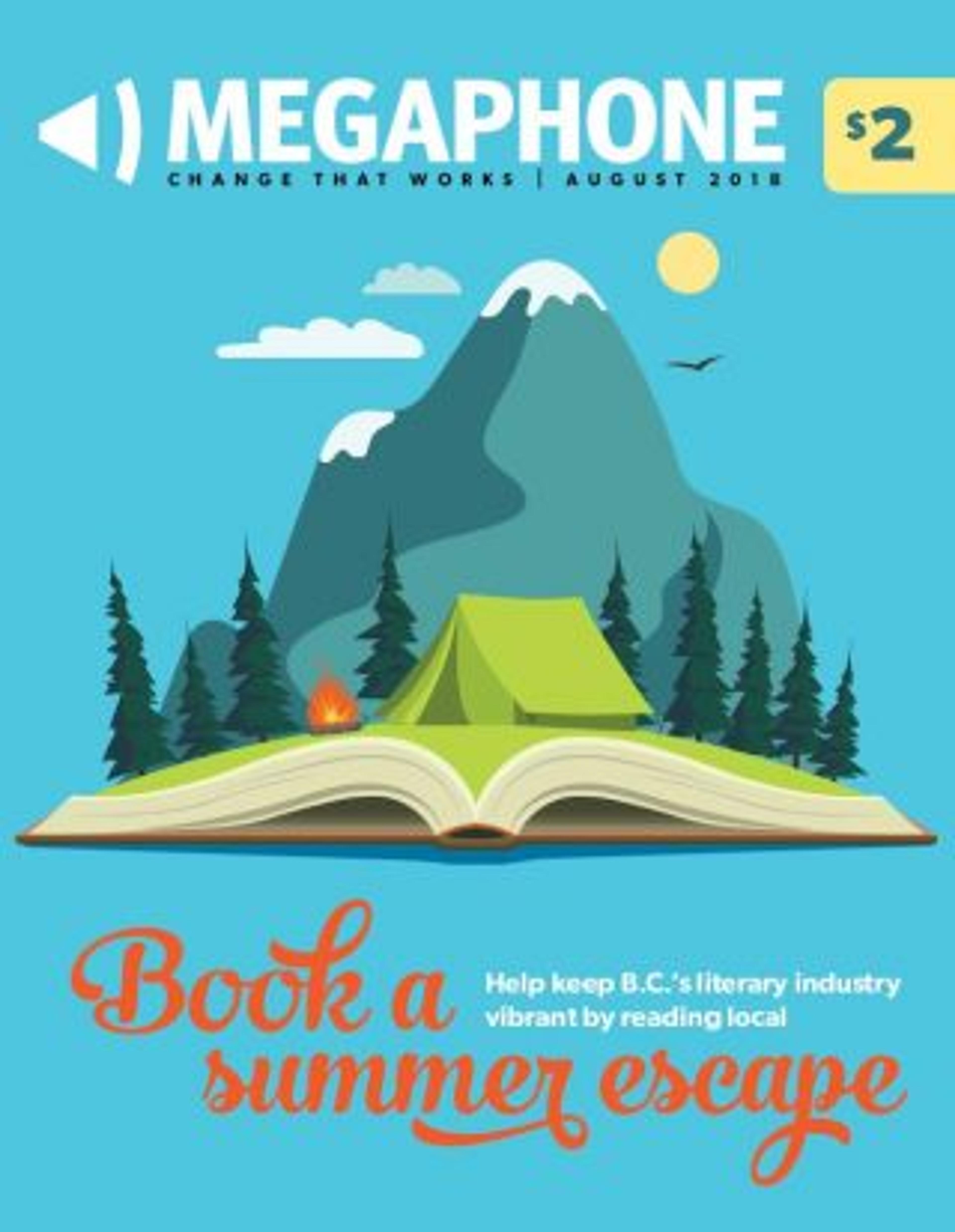
As world leaders make potentially generation altering decisions about the future of planet Earth, people on the margins are experiencing first hand the impact of environmental degradation and climate change. A collaborative storytelling endeavour called the Climate Disaster Project - which employs a trauma-informed co-creative process - collects first-hand accounts of what it was like to survive recent heatwaves and wildfires in British Columbia, Canada. DJ is an outreach and harm reduction worker in Vancouver’s Downtown Eastside who is a member of the Sts’aies Nation. She co-founded Sex Workers United Against Violence. With her naloxone training and kit, she has also saved lives. And that’s the work she was doing when the western North America heatwave hit her community.
East Vancouver, Canada
Western North America Heatwave, 2021
DJ is an outreach and harm reduction worker in Vancouver’s Downtown Eastside who is a member of the Sts’aies Nation and was born to a family of nine brothers. She was raised in Chehalis, a small forestry, farming and First Nations community near the city of Chilliwack in British Columbia.
DJ came to Vancouver after her cousin was killed at the six-storey Roosevelt Hotel, which was the home of bankers, doctors, dentists and lawyers in its early 20th-century heyday, but has long since fallen on hard times.
“My niece was only eight years old. She phoned me up. ‘Aunty DJ, Mommy hasn't come home in three days and we're hungry,’” she remembers. “It was so hard on me.”
DJ says her cousin’s murder remains unsolved. But she continues to remember the good times they had together whenever one of her cousin’s favourite songs, These Boots are Made for Walking, plays.
DJ has helped many organizations and causes in the Downtown Eastside. That includes co-founding Sex Workers United Against Violence. With her naloxone training and kit, she has also saved lives. And that’s the work she was doing when the western North America heatwave hit her community.
It was quite brutal. I had to keep taking a cold shower, almost every hour, or every two hours, because it got so hot in my room. Even with blankets on my window, it made it even hotter. And it was brutal trying to eat or drink.
You can't eat when it's so hot. I tried to make ice tea. I'd make ice cubes. By the time you put your ice cubes in the drink, they're already melted before they hit water. To get to the washroom was a challenge for me in the heat.
I had to keep a cold towel in the freezer. Make sure it's ice cold when I take it out. Put it around my neck. By the time I get downstairs, or a block away from my home, the ice is already melted. You can see the steam coming off the towel. That's how hot I was.
We had over 80 bottles of water we were handing out to people and giving money to the kids: taking them to 7-Eleven, getting a slushy, or a pop, or taking them to McDonald's. Some of their parents can't afford to buy lunch for them, so that's what I would do with my money.
I heard that they were having a big forest fire and it was taking longer to put out. You can smell the fire, even with the windows closed. They mentioned on the news that people that have breathing problems should not be going out or near the door because that’s how bad it was. I went through three puffers in one day. And that's way too much, the doctor said.
I had to figure out how to block the smell because of my asthma: putting duct tape on the bottom of my window, trying to find something to put underneath my door, like an old towel or an old blanket. But I couldn't do it cause I was inhaling too much of the smoke. I guess I inhaled more than I was supposed to.
I was going out and down to the store. By the time I got on the elevator, I collapsed. They found me lying on the floor. When I came to, I was like, “How’d I end up in the hospital? How the heck did I get here?” “Oh, you collapsed in your elevator and they got worried because you weren’t responding.” Somebody called the ambulance. I guess I blacked out. I don’t remember anything from it, until they told me.
I had to figure out how to block the smell because of my asthma: putting duct tape on the bottom of my window, trying to find something to put underneath my door, like an old towel or an old blanket. But I couldn't do it cause I was inhaling too much of the smoke.
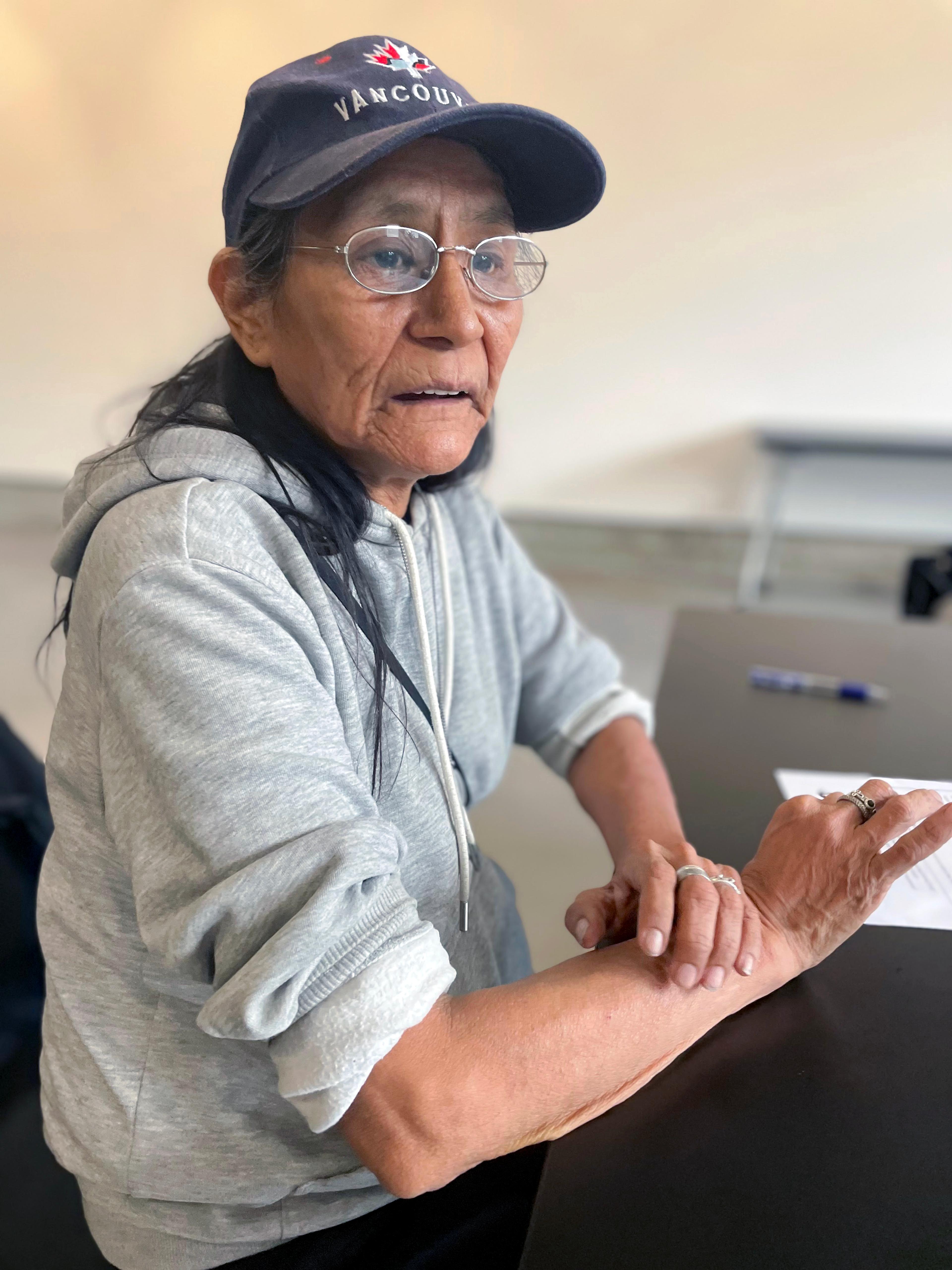
Photo by Rob Smith
That's how I found out I had COPD. I’m trying to figure out what the hell was COPD [Chronic Obstructive Pulmonary Disease]? So I had the doctor do a printout for me, so I can read about it when I got home. I didn’t know I had it. That's when they told me you shouldn’t be going anywhere. “Get your neighbour or a friend to come over.” And it's like, "OK, now, who can I depend on? Who can you call?"
I'm fucking just totally freaking out in my room because I can't do anything. I had to get a friend to bring over two new fans for me because I couldn't get up to Army and Navy to get them. I can't even go to work because I work outside, doing my outreach and support work. So I started making chokers and medicine bags.
I had people selling them for me because I can't go downstairs or in the courtyard. And they go, "OK, DJ, here you go. We made $80 for you today." "Excuse me? You actually came back with the money and receipts?" It blew me away. "I didn't ask for receipts. How did they know I wanted receipts?" Because they go, "This way, then you know that you can depend on us, at any time. That you can trust us with your money." And I go, "I didn't even think of it that way."
During the heatwave, it was hard for anybody to take care of themselves. A lot of these people are under addiction. Where I work, we had 15 overdoses within an hour. And non-stop, because none of these kids are drinking water or having something to eat before they use. And, if you're a heroin user, you should not ever use too much heroin in the heatwave.
Because, once you do that shot, you start going on the nod. And then, suddenly, you won't wake up.
We're a little bit more prepared now. Now we know exactly what needs to be done, who to call, who to depend on. If we do get a heatwave, make sure you get together or have a meeting and try to figure out what you can do for the community. Get the kids to help. And this is how you get to know the rest of the community, too.
